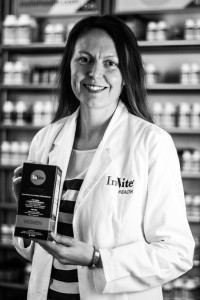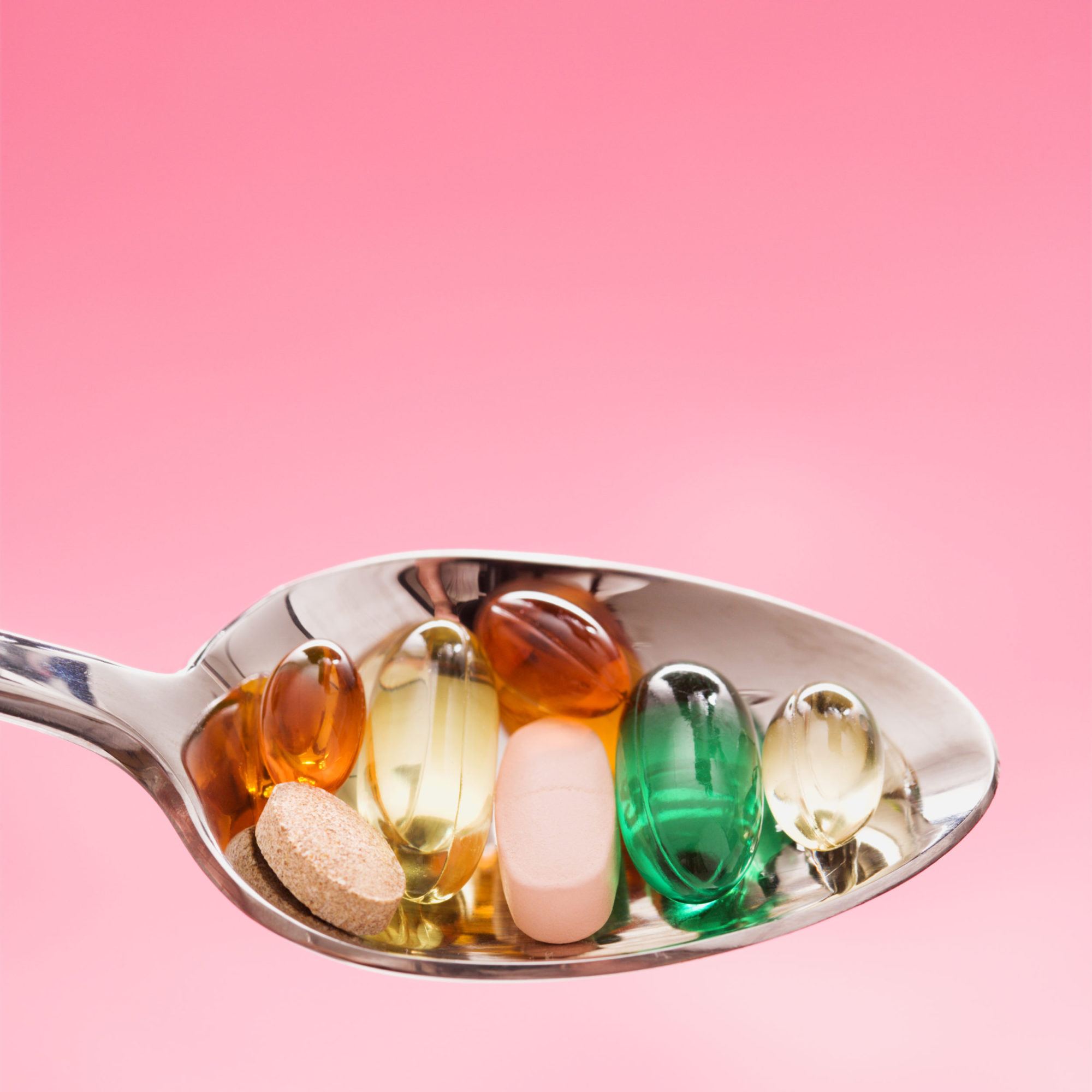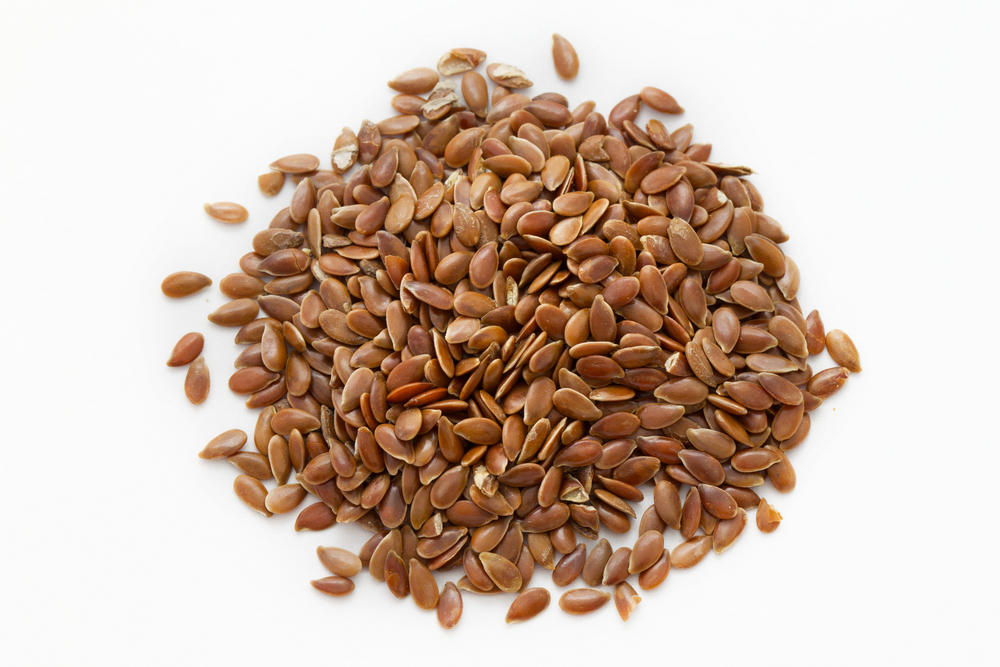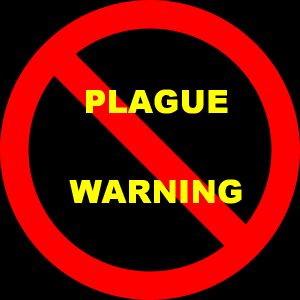Flaxseeds, also known as linseeds, are a wonderful superfood. They are a terrific source of fiber, protein, and ALA (an essential omega-3) and contain mucilage, phytoestrogens and anti-cancer lignans. They also contain micronutrients like manganese and vitamin B1. This food is so nutritious, it is no wonder it benefits a long list of organs and organs systems, providing symptom relief and disease prevention. In fact, studies have shown flaxseed to benefit in numerous conditions – PMS, breast cancer, prostate cancer, type 2 diabetes, memory, high blood pressure, cholesterol, and skin healing.
Flax Health Benefits
 Unlike the non-edible linseed oil, raw flax and flax oil have numerous health properties. Because they have a tough outer shell, it’s best to grind the flax seeds to get the most beneficial properties from them. Take 1 tbsp with yogurt & berries before going to bed. I have stopped recommending flax oil because it is very unstable. If you choose to consume flax oil, I suggest making sure that it is high in lignin and raw but it does not come close to matching the lignin content of the powdered seed and lignan’s are important to many of the protective benefits of flaxseed. Never cook flax oil.
Unlike the non-edible linseed oil, raw flax and flax oil have numerous health properties. Because they have a tough outer shell, it’s best to grind the flax seeds to get the most beneficial properties from them. Take 1 tbsp with yogurt & berries before going to bed. I have stopped recommending flax oil because it is very unstable. If you choose to consume flax oil, I suggest making sure that it is high in lignin and raw but it does not come close to matching the lignin content of the powdered seed and lignan’s are important to many of the protective benefits of flaxseed. Never cook flax oil.
Flax contains phytoestrogens called Lignans. Lignan are compounds that build plant cell walls. They contain specialized phytoestrogens that help normalize the body’s estrogen production. Eating lignin compounds help to convert intestinal probiotics into enterolactone, a metabolite that produces weak estrogenic activity in our blood circulation. Many reports have revealed that high enterolactone in our blood helps to reduce the risk of breast, prostate, colon cancers and heart disease. Lignans are great for hormone balance, weight loss, sugar metabolism and skin healing. In addition to lowering blood pressure, cholesterol and regulating bowel movements flax seeds have a host of protective hormonal activity, which is very powerful and very special. Medical doctors have become concerned with the term “phytoestrogen’, as they believe it proliferates cell activity similar to synthetic and natural estrogen compounds, advising their patients against taking the superfood. Research, however, does not support this opinion.
While research pertaining to the range of capabilities of flaxseeds in humans is present for many metabolic conditions, animal studies are more advanced in terms of hormone studies and should not be overlooked. The super-food aspects of flax include: protection of bones, regulation of period, increase in sexual libido, vaginal lubrication, and hair health (similar to estrogen). However, flaxseeds do not provide the negative growth promoting effects of medical estrogens, birth control pills, HRT and testosterone. In fact, flax seeds have been shown helpful in reducing the symptoms of menopause while not growing the hormone sensitive tissue. One study determined that while flax seed contains compounds that may slow bone loss during aging, especially when combined with low-dose estrogen therapy, it does so without promoting growth of uterine tissue of postmenopausal female rats2.
Another study from Brazil showed that neither the flaxseed extract nor flaxseed meal exerted estrogenic effects on the vaginal epithelium or endometrium as revealed by the absence of changes in the blood levels of follicle stimulating hormone and estradiol, as well as in the endometrial thickness, and vaginal epithelial maturation value of postmenopausal women. This is a benefit for those wanting to treat menopausal and hormonal symptoms but may be concerned with breast and ovarian cancer, endometriosis and fibroids.
To regulate periods, increase fertility and detox from the birth control pill, follow this flax seed protocol for a minimum of 3 months. Studies show, in a population of hens, flaxseed supplementation reduced severity and prevalence of ovarian cancer through reduction of a growth promoting and pro-inflammatory hormone called prostaglandin 24.
This flax seed protocol may also help to increase fertility, regulate menstrual and ovulatory cycles and improve postpartum symptoms. I recommend adding seeds to breakfast, especially after traveling, when one’s cycle can get a little wonky. Make sure to use raw organic seeds. If you don’t know where you are in your cycle, use the phases of the moon to guide you.
The Seed Protocol:
From the day you start to flow to ovulation (day 1–14). If you don’t know where you are in your cycle, use the moon cycles as a guide. Starting from the next new moon to the following full moon take:
- 1 tablespoon flaxseeds or 4 capsules (the oil doesn’t count)
- 1 tablespoon pumpkin seed
Starting from ovulation to menses (day 14 – 28) or from full moon to new moon take:
- 1 tablespoon sunflower seed
- 1 tablespoon flaxseeds or 4 flaxseed capsules (the oil doesn’t count)
If you have a hankering for bread, this flax meal bread recipe will help lower cholesterol, blood pressure and improve regularity.
You can find Dr. Millie’s Flourless Flax Seed Bread Recipe Here!
The best thing about flax seeds; if you plant it, it will grow.
For a full list of sources and references from this article, click here!
Interested in educational articles by our amazing Nutritionists and Naturopathic Doctors? Check out their articles here!




 Unlike the non-edible linseed oil, raw flax and flax oil have numerous health properties. Because they have a tough outer shell, it’s best to grind the flax seeds to get the most beneficial properties from them. Take 1 tbsp with yogurt & berries before going to bed. I have stopped recommending flax oil because it is very unstable. If you choose to consume flax oil, I suggest making sure that it is high in lignin and raw but it does not come close to matching the lignin content of the powdered seed and lignan’s are important to many of the protective benefits of flaxseed. Never cook flax oil.
Unlike the non-edible linseed oil, raw flax and flax oil have numerous health properties. Because they have a tough outer shell, it’s best to grind the flax seeds to get the most beneficial properties from them. Take 1 tbsp with yogurt & berries before going to bed. I have stopped recommending flax oil because it is very unstable. If you choose to consume flax oil, I suggest making sure that it is high in lignin and raw but it does not come close to matching the lignin content of the powdered seed and lignan’s are important to many of the protective benefits of flaxseed. Never cook flax oil.

